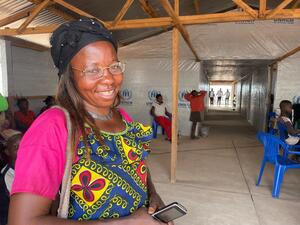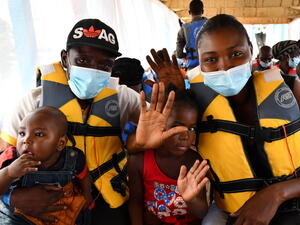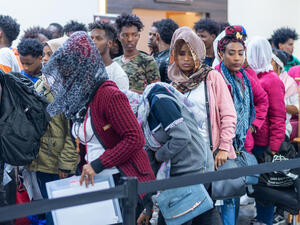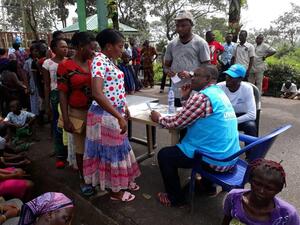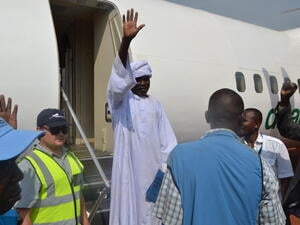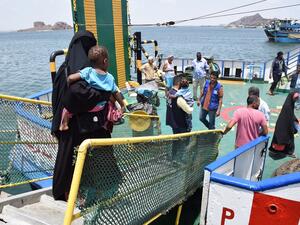UNHCR Executive Committee chairman visits Iran
UNHCR Executive Committee chairman visits Iran
Ambassador Jean-Marc Boulgaris, Chairman of UNHCR's governing body - the Executive Committee - and Switzerland's Permanent Representative to the United Nations in Geneva, is visiting the Islamic Republic of Iran this week to see our protection and assistance programme and meet with government officials and aid workers.
He is flying to the south-western Iranian city of Ahwaz today, and tomorrow plans to visit Ashrafi and Baninajjar refugee camps. For many years, Ashrafi was Iran's largest refugee camp, with more than 11,000 Iraqi refugees who arrived during the 1980 Iran-Iraq war. UNHCR and our national partner, Iran's Bureau for Aliens and Foreign Immigrant Affairs (BAFIA), have assisted more than 2,100 Iraqis, mostly from Ashrafi, to return home since starting convoys last November; many other Iraqi refugees have also returned spontaneously.
Ashrafi is slated to close this Sunday following the departure of the camp's more than 200 remaining refugees who will be accompanied up to the border by Ambassador Boulgaris. The convoy, UNHCR's 10th since starting to help Iraqis go back beginning last November, will travel via the Shalamsheh border to the southern Iraqi city of Basra. UNHCR national staff will receive the returning refugees and distribute blankets, plastic tarpaulins, lanterns, hygienic supplies and other items.
Earlier this week, Ambassador Boulgaris visited Afghan refugees in Torba-e-Jam refugee camp near the eastern city of Mashad and toured the Screening and Repatriation Centre for Afghan refugees in the border town of Dogharoun, where UNHCR and BAFIA provide final briefings and mine awareness training for returning Afghans before they reenter their homeland via the Islam Qala border crossing. So far this year more than 2,500 Afghan refugees have returned from Iran; since early 2002 more than 400,000 Afghans have repatriated under the UNHCR-/BAFIA-facilitated return programme, while another some 260,000 left spontaneously.
During his mission in Iran, the ExCom chairman is meeting with numerous government and provincial officials, including senior officials in the Foreign Affairs and Interior ministries and the country's parliament. He also held meetings with various members of the diplomatic corps and non-governmental organisations working in Iran.
Over the last two decades Iran has hosted one of the world's largest refugee populations. There are still more than 1 million Afghan refugees and some 150,000 Iraqi refugees in the country. The vast majority of refugees reside amongst local host communities, rather than in the 48 established refugee camps.
UNHCR is not encouraging people to return to either Afghanistan or Iraq due to the security problems and difficult humanitarian conditions in the two states, however refugees who themselves seek to repatriate receive transport assistance up to the frontier and a basic assistance package.
The UNHCR Executive Committee is made up of 64 countries that meet every autumn in Geneva to review and approve our programmes and budgets and to advise on protection matters.
In recent years, its chairmen have established the tradition of visiting field operations to become better acquainted with our work. Ambassador Boulgaris' mission to review UNHCR operations continues into next week, as he plans to travel to Sri Lanka on a six-day visit to review return and reintegration activities.

